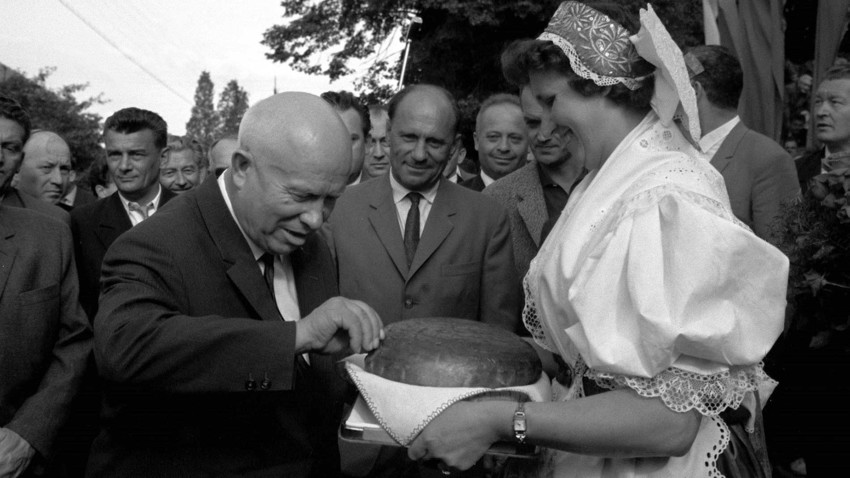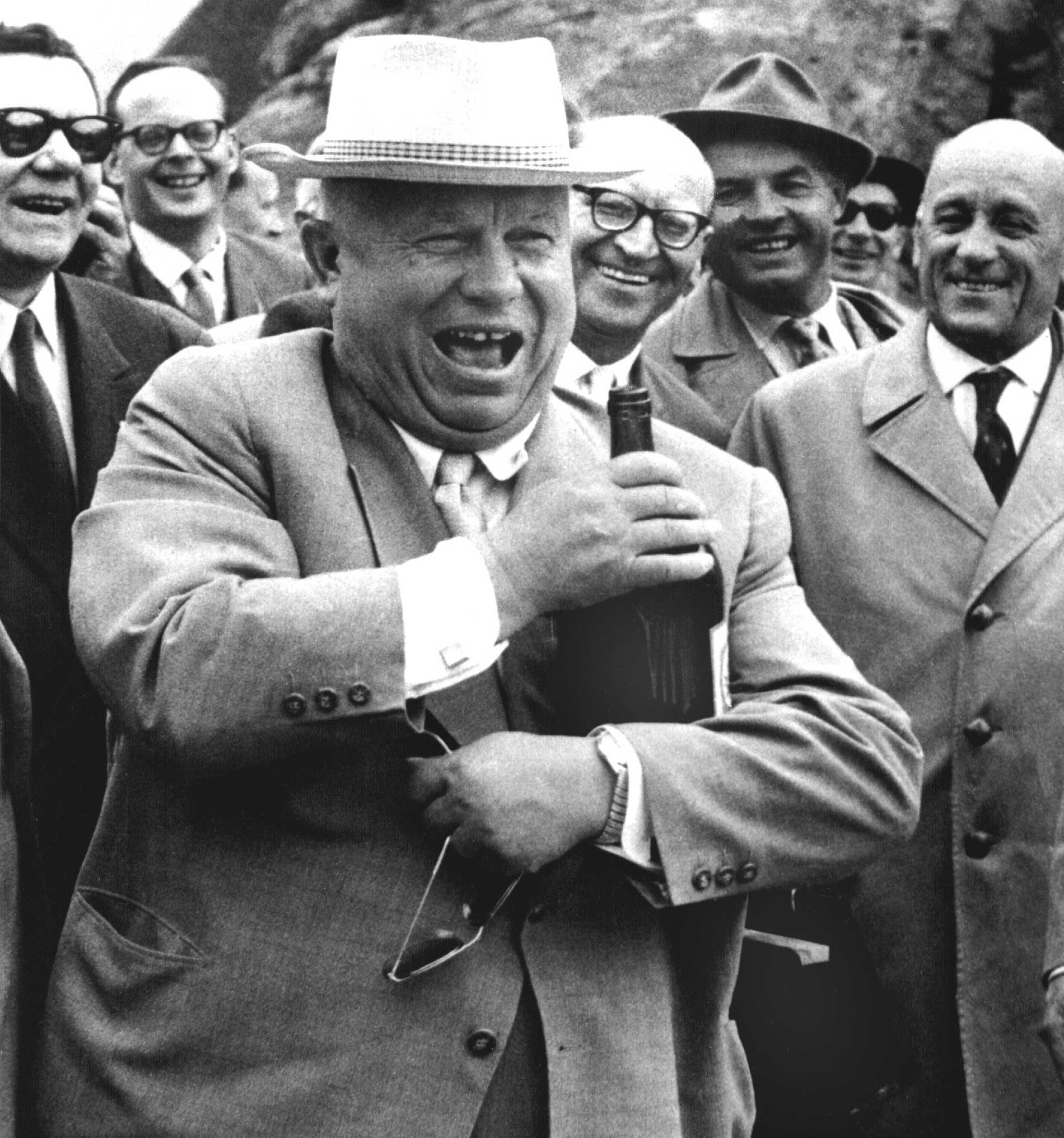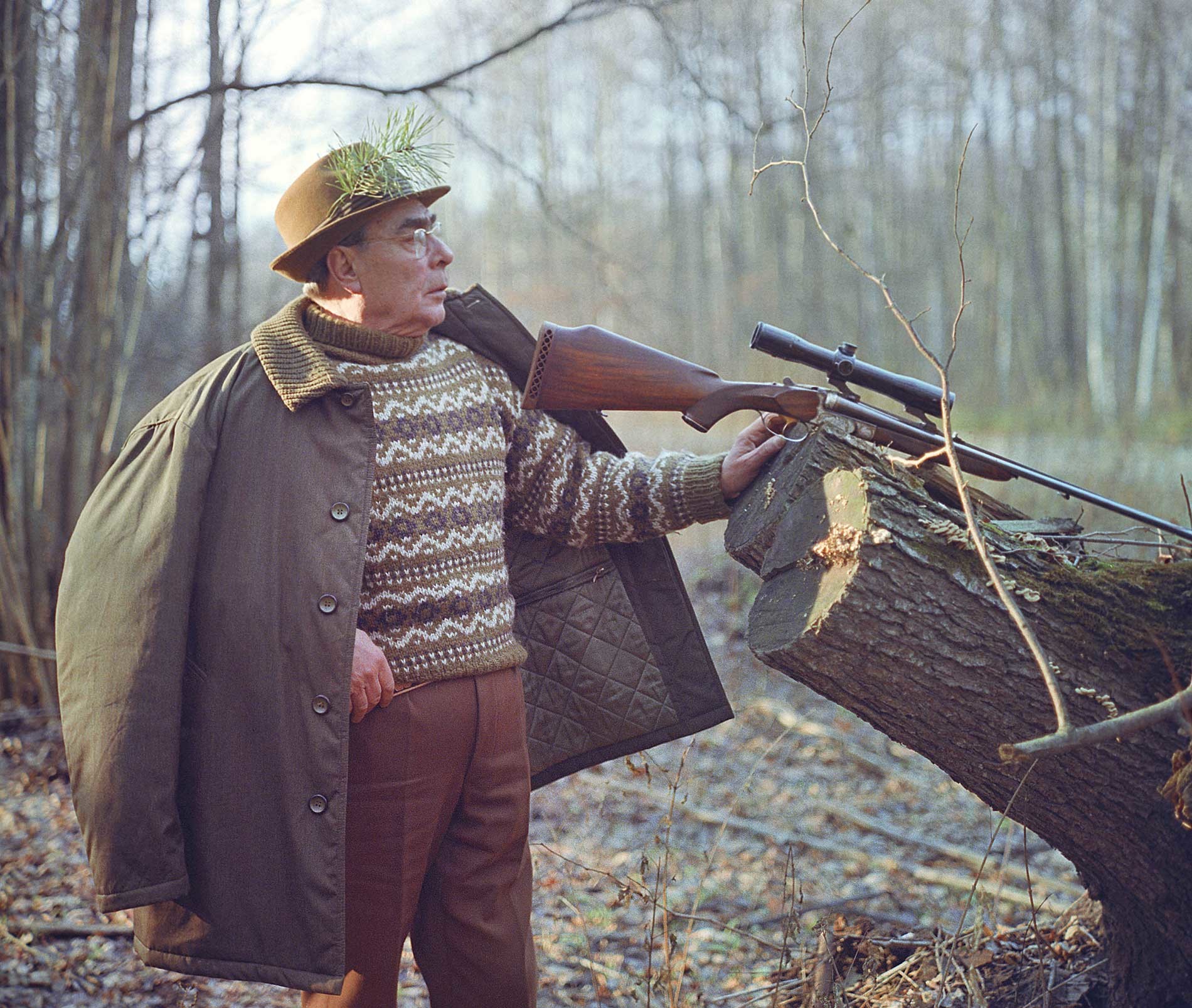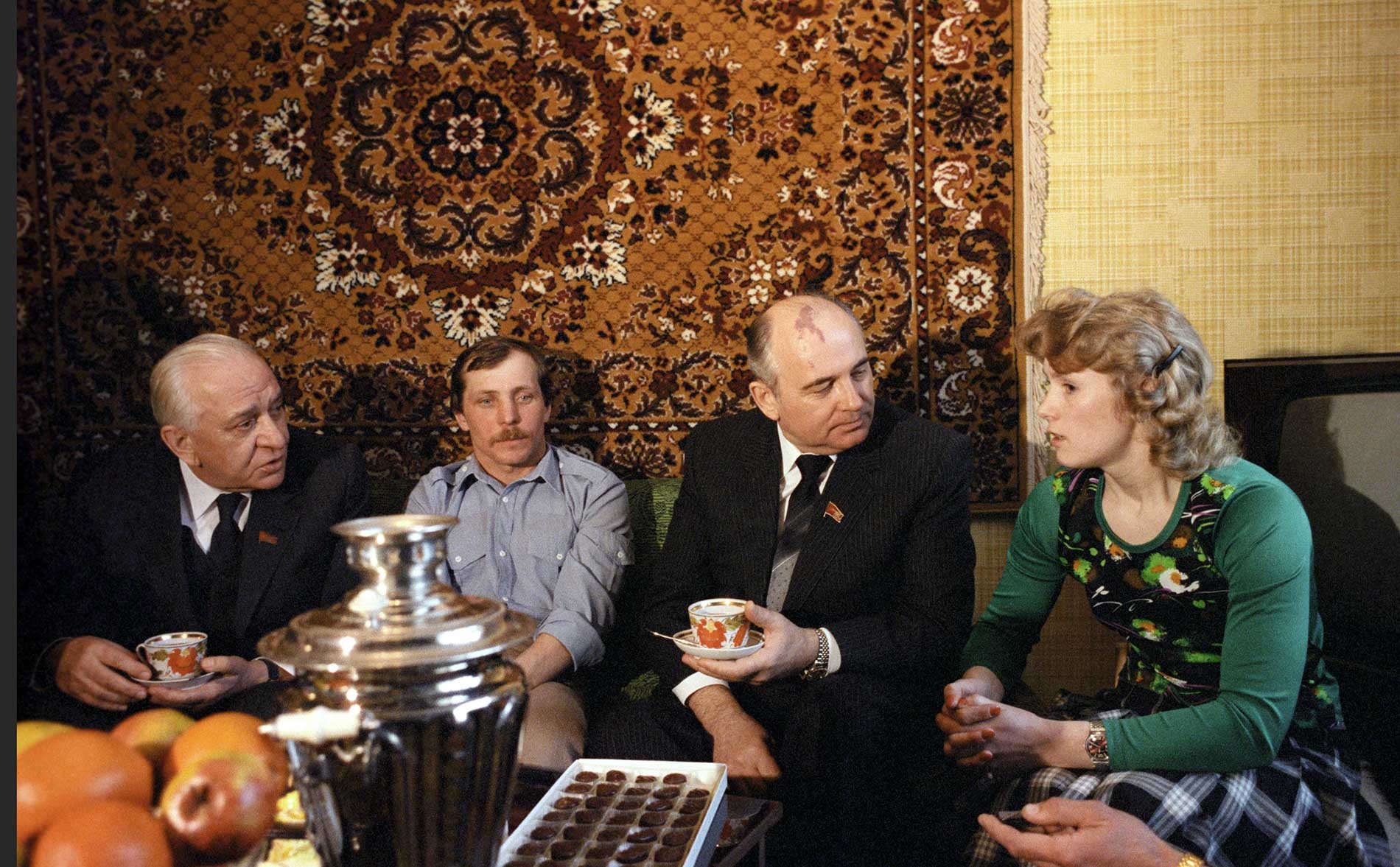
Soviet leaders had different tastes
TASSVladimir Lenin was politically savvy, but a complete amateur in the kitchen. In her memoirs, his wife and comrade-in-arms Nadezhda Krupskaya almost never described family meals as "lunch" or "dinner," but usually used the Russian
"Lenin not only didn't notice what he
Lenin's contemporaries noted that his only culinary passion was a mug of good beer. The great Bolshevik was born and raised on the Volga where they still brew Zhigulyovskoe beer, which is famous throughout Russia, and he spent many years in exile in Germany, as well as spells in Britain and Switzerland, so he knew a good beer.
A dictator's table
Joseph Stalin didn't stick to Lenin's maxims when it came to food. In Georgia, where he was born and where his tastes were formed, they have very rich culinary traditions. Famous Georgian wines, sweets made from dried fruit, pickled cheese, spicy and
Later, when he was exiled to Siberia, he sampled Russian cuisine too, especially fish-based dishes. The Siberian waterways produce highly sought-after varieties of fish in abundance, so even those in exile could afford soup made from the prized Russian
Many years later, members of the Communist elite permitted to eat with Stalin recalled how they initially turned up their noses at
Top secret
Stalin had two requirements. First, the waiters didn't wait on the
Stalin’s second idiosyncrasy was that there had to be more than ten varieties of vodka and brandy on hand, including the famous Kizlyar that Stalin personally sent Churchill. The ruler of the USSR himself drank moderately, and always preferred Tsinandali and Teliani, white and red wines from the Kakheti region of Georgia that were made by a different method than European wines. Among fruits, Stalin loved bananas best of all – the most exotic fruit available in the Soviet Union in those days.
Not by corn alone
Nikita Khrushchev, who denounced the cult of Stalin, didn't care much for fruit, even exotic kinds. He wasn't even that crazy about eating corn, which he

Nikita Khrushchev was far not a vegeterian
TASS"We made a lot of different dishes from meat," recalls Khrushchev's personal chef Anna Dyshkant. "Meat with mushrooms, meat with prunes sweet and sour. He was very fond of tenderloin. We made it for him in a special way. We poured oil in the pan, then soaked up some with a cloth so that the pan was half-dry. We
Nikita loved pirogues just as much (similar to
Luxury stagnation
In the culinary history of Russia's elite, the Brezhnev era is known for the lobster soup that was revived by the Kremlin
The soup is somewhat similar to the famous Mediterranean
They are gently boiled in a light fish broth, the tender meat is removed from the necks and claws, and the shells are fried. The fried shell is finely ground and sautéed in a small amount of melted butter. Then this sauce and the meat are added to the broth and brought to a boil. Black pepper, bay
Hunter
One of Brezhnev's passions was hunting. "Every Thursday after Politburo meetings he invited comrades to go hunting. Sometimes the meetings lasted only forty minutes," recalled KGB Major General Mikhail Dokuchaev in an interview with Komsomolskaya Pravda. "Each hunter was given a small case that held 250ml of brandy and sandwiches."

A hunter Brezhnev
TASSA successful hunting trip was celebrated with a magnificent feast, at which wild game (mainly wild boar) was the main attraction. Brezhnev's favorite vodka was Zubrovka, which is Belarusian bitters made from plants grown in Belovezh Reserve.
Perestroika of tastes
Years later it was there, in Belovezh forest, where the fateful agreements were signed that established the Commonwealth of Independent States (CIS) and brought an end to the Soviet empire in 1991. This would eventually change the geopolitical structure of the whole world.
But the signature of the author of perestroika and the only president in the history of Soviet Union —Mikhail Gorbachev — was not on that agreement. It was signed without his knowledge. It is noteworthy that Gorbachev, one of the most unpopular statesmen in modern Russia, ate perhaps more sensibly as president than all his predecessors. He ate a variety of foods, always in small portions.
"He had a tendency to gain weight, so he often restrained himself," said Kremlin chef Anatoly Galkin in an interview with Segodnya.ua. “He would ask me to make him a salad. He didn't want anything

Luxury of Perestroika: Mikhail Gorbachov (second from right) drinking tea
TASSThe Soviet president especially loved porridge, and a royal assortment was offered to him. "Buckwheat, pearl barley, whole grain barley ... He especially liked pearl barley from real grain," continued Galkin. "It had to be cooked for eight hours, but it was worth it. We made him buckwheat in different ways, as a gruel or fluffy, with mushrooms, bacon ... Sometimes he asked for rice or millet porridge."
The Gorbachevs ate high-calorie or rich meals only on festive occasions. Then chefs prepared lamb, wild game, sturgeon and
Today Gorbachev, who is undergoing treatment in Germany, has a much more modest diet on the recommendations of a doctor.
All rights reserved by Rossiyskaya Gazeta.
Subscribe
to our newsletter!
Get the week's best stories straight to your inbox